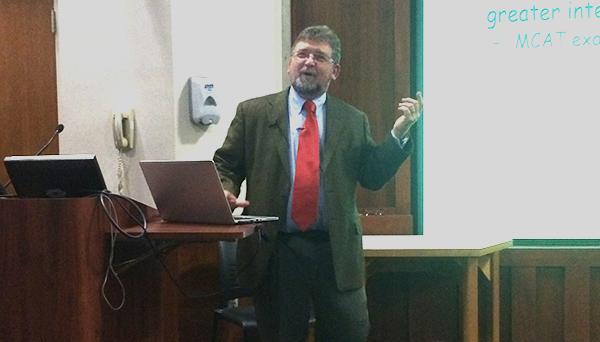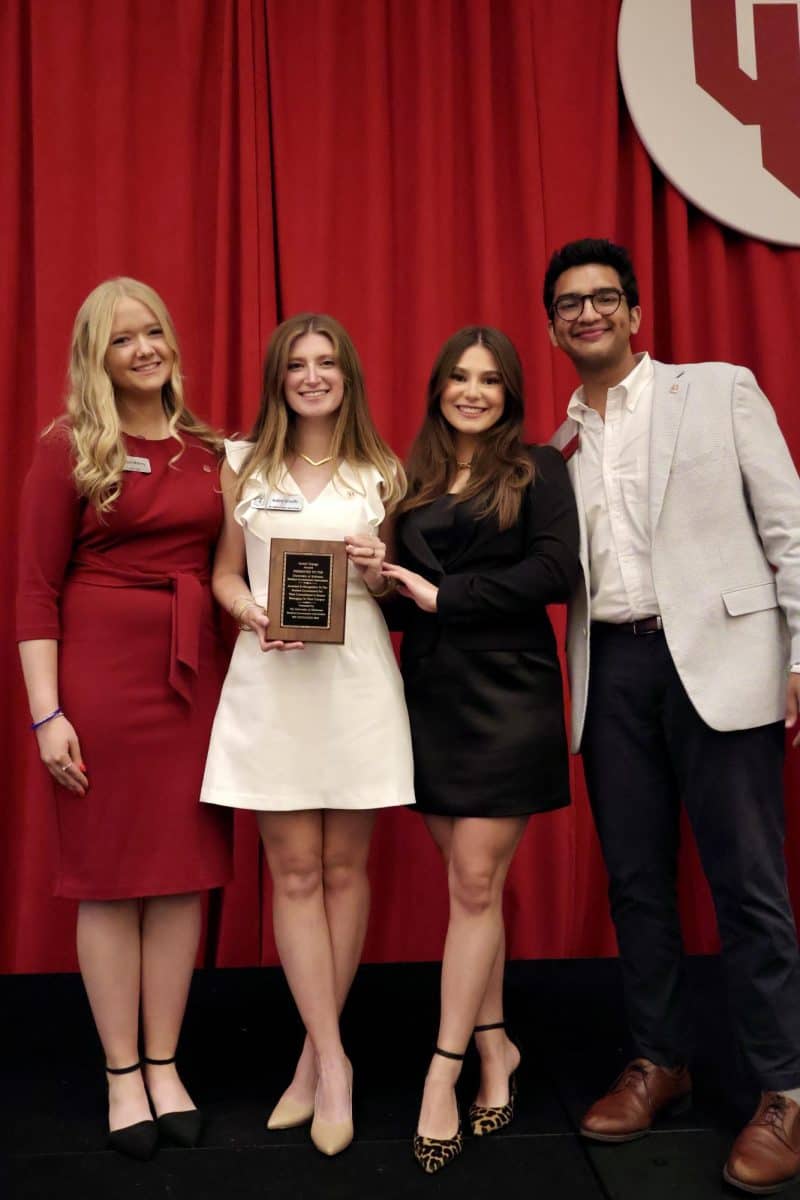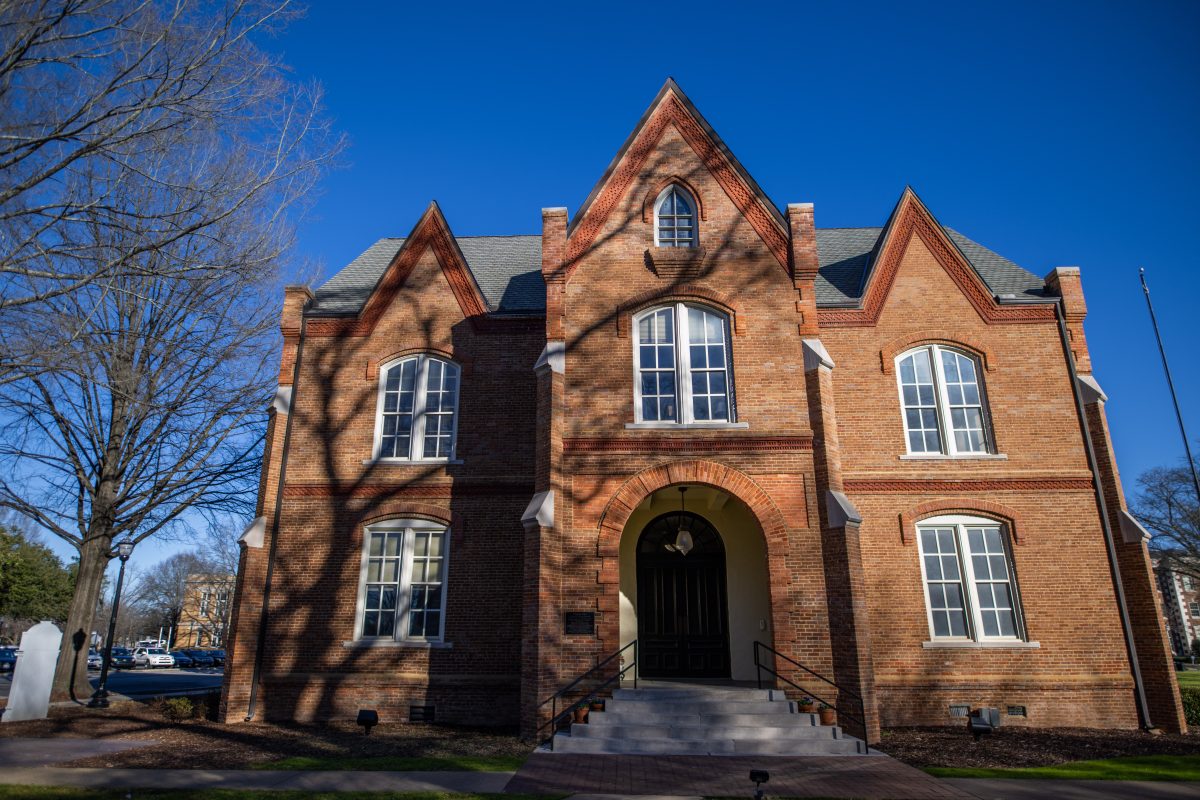The Thursday evening lecture “What Doctors Need to Know About Evolution” was a part of the Evolution Working Group’s 10th year of the Alabama Lecture on Life’s Evolution series, or ALLELE.
Antolin, a biologist studying epidemiology and population genetics, discussed the significance of evolutionary sciences in modern medicine both in terms of education and in actual practice. His work has been widely published in the academic world, and most recently he has been working with an interdisciplinary team to study chronic wasting disease in mule deer.
“This life was a natural for me,” he said in his lecture. “It is critical that we gain a better understanding of evolution as a cornerstone of modern biology.”
Antolin began his lecture with a recap of evolution’s history as a science, focused largely on Charles Darwin and his family, who had a history in medicine.
Antolin went on to assert that medical schools would benefit from instituting curriculums more centered on evolutionary sciences that are currently absent in such classrooms and an understanding among doctors that medicine is rarely “algorithmic.”
“Viruses and diseases evolve very quickly,” he said. “It is possible that diseases like Ebola that were once considered spillover diseases could evolve to the human form and become a regular thing. We need more rapid diagnosis of viruses and bacterial infections, because fighting a virus with antibiotics does nothing. Better diagnoses and treatment options will come with a better understanding of evolutionary medicine.”
“Lectures like these are extremely important,” said Branden Hervol, a junior majoring in biology. “This really helps introduce students to evolution – a field which a lot of public education has really shut out and frowned upon.”
The Evolution Working Group aims to use lecture series to combat this problem and is actively engaged in designing K-12 evolution education material through “Speaking Evolution.”
“The ALLELE team is a diverse group of disciplines working together to further evolutionary biology,” said Laura Reed, an assistant professor of biology who introduced the event.
“Our department works hard to educate people about evolution,” said Christopher Lynn, the assistant anthropology professor behind the ALLELE series. “We are a hub for evolution studies, especially in the Southeast.”







